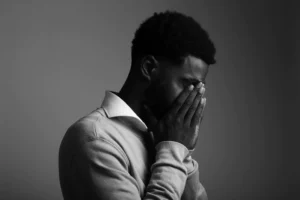Editor’s note: This article was written at the beginning of Fall semester. We’re publishing it now so that we might learn from the author’s experiences, and make the most of the summer ahead of us.
* * *
It’s still hot in some places, but summer is over. As you continue easing back into the university routine (or adjust to college for the first time), there are two things I want you to reflect upon as you simultaneously long for the past summer and anticipate the far-away next one:
You don’t get summers off after you graduate. This is the harshest of realities and, to be blunt, one of the most depressing things you encounter post-graduation. Unless, of course, you become a teacher. Summers off: truly one of the best reasons to pursue a degree in education.
Summer is a time for learning. I’m an advocate of the idea that your time at college is for the purpose of learning — but not all learning occurs in the classroom. And not all learning takes place during the fall or spring semesters, either. Some of the best life lessons come during the seemingly less educational months, whether you’re holding down a job or slaving away as an intern or even hanging out in your parents’ pool. Figure out how to use those off-weeks to learn something (about yourself, about life, about a career) and you’re well on your way to a good education.
To prove my point, I’ll offer you a few lessons I learned from my summer. None of them took place in a traditionally educational setting. None of them had much to do with books or work. None of them cost much money. But all of them taught me something I’ll take with me into the next year and, hopefully, the rest of my life.
So here they are: Three Things I Learned from Three Summer Activities.
Activity #1: I competed in my first sprint triathlon.
Lesson Learned: With hard work and discipline, I can do just about anything.
Until June of this year, I had never run more than a mile or biked farther than four miles at a time. I’m a decent swimmer, but I absolutely hated to run. Hated it. I only like to exercise if it’s the kind of activity that accomplishes something. Slogging away on a treadmill? That bores me. I need to go somewhere. I need a destination.
So I found one. I signed up for a sprint triathlon scheduled for September 6. It had the reputation for being the most challenging around. A friend and I started training, but were soon told by others that, um, the September tri shouldn’t be our first. It’s too hard. We seriously needed another, easier one under our belts first. So we each found another mid-summer competition. We finished these first races and continued training for the big September one. And just a few days ago, we completed it. Good news: It didn’t kill me (though it came close). In June, I was in decent shape but didn’t run, bike, or do much of anything for endurance. Three months later, I’ve completed two triathlons.
I realize that’s no Michael Phelps-sized accomplishment — all kinds of people compete in sprint triathlons — but it was a big, intimidating step for me. Once I had something tangible on the calendar to anticipate, though, I trained hard. I didn’t like running, but for weeks I forced myself do it for at least 30 minutes every other day. I put in the effort.
And I changed. These days, running isn’t that bad. It’s not as if the labored breathing, achy legs, and eyes stinging from sweat suddenly feel like, you know, being tickled by butterflies. But I’ve come to appreciate the benefits of my training. I’m healthier. I feel better. I feel like I accomplished something this summer.
Now, to crack open the fortune cookie: Success in life — whether you’re defining “success” as a certain GPA, a fulfilling career, or a deep connection with God — isn’t easy. From way back here at the start, the finish line can be intimidating. But you can get there. Set a goal, be disciplined, and prepare for it one small step at a time. It’s not always fun, but the destination is worth it. The journey makes you stronger.
Activity #2: I survived a difficult three-day backpacking trip with a 27-pound pack.
Lesson Learned: I can get by with much less than I previously thought.
This was my second summer to take a guys-only backpacking and flyfishing trip with a few of my friends up to the Bushnell Lakes near Salida, Colorado. The trail was six miles long, with a 3500-foot elevation gain. A serious climb, with a few portions that might as well have been stairs.
The secret to an enjoyable backpacking trip — in addition to the scenery and the company — is to make the hike as unhorrible as possible. The secret to doing this, of course, is to reduce the weight of your pack. Last year, my pack weighed around 38 pounds. Not bad, but I knew I could do better. This year, I determined to take only what I absolutely needed. After a couple of gear changes and some much smarter packing, I got it down to 27 pounds. That included three full days’ worth of meals, fishing gear, and clothing for three-season weather.
Most of the other guys on the trip had packs weighing upwards of 40, 50, and even 60 pounds. They were hurting on the way up. But me? I was breathing hard, and a bit fatigued, but it wasn’t half-bad. I enjoyed the silence. I savored the views. If that sounds like bragging … well, that’s because I’m bragging. My pack weighed less. Therefore I enjoyed the hike more. And still I had everything I needed for the weekend.
There’s a good life metaphor in there somewhere. As you continue to step toward a career, don’t get caught up in the pursuit of too much stuff. Keep it simple. Too many possessions can tire you out. Simplicity frees you up to participate more in the world around you. It makes the journey a whole lot better.
Activity #3: I arranged to work only four days a week at my “real” job.
Lessons Learned: Rest is good. Play is good. And a summer-long string of three day weekends is awesome.
I started the 2008 year under contract with a couple of publishers to write and deliver three (!) book manuscripts over the coming months. Yikes. Back in January, this was a daunting task. I have a full-time job — and a family — and the prospect of writing all those books seemed a little much. So I made arrangements at work to switch to a four-day workweek, giving me Fridays off to write.
In the winter and spring of this year, I worked hard every night to get the books written. I wrote all day on Fridays. By the time summer rolled around, I’d pretty much finished the first two manuscripts. I was exhausted. I needed a break.
And because I’d worked so hard at the beginning of the year, I decided to take one. So for June, July and August, I stopped writing but retained my Friday-less schedule. It was summer vacation, my kids were home all day, and we took full advantage of our three-day weekends. We traveled. We swam. We rode bikes together. We had full intensity Nerf-gun fights in and around the house. We had a blast.
I worked hard for the first five months of the year. I recovered by playing hard over the next three months. I needed the rest, and the rest was good.
I’m back to writing on Fridays again — book number three is due in early 2009 — but you know what? After the manuscript is finished and I’m no longer under deadline, it’s going to be hard to transition back to an “official” five-day workweek. Deride me for being lazy or too European or too enamored of my leisure time. But I’ll tell you that spending every Friday this summer with my kids instead of my coworkers was one of the best choices I ever made.
And besides, who decreed that a 40-hour workweek was the American Dream? Not Timothy Ferriss, that’s for sure. If given the choice between making more money by overworking myself or making less by taking more time off, I’m gonna choose the latter. Always. Like packing light, it means more freedom — freedom for family, for adventure, for service, for the things that matter.
We work so we can live. But some of us forget to, you know, actually live. I’m determined not to make that mistake.
Work vs. The Rest of Life
Triathlon. Backpacking. Three-day weekends. All three of the activities above involve playing — as opposed to conventional “work” — but I think they taught me as much about myself as any college class or business seminar or productivity course I’ve ever taken. Funny how that happens.
Here’s a final lesson: Your job, once you settle into it, will be important. Like Paul said, it’s good to pursue a career. It helps you contribute to society, feed your family, put food on the table, and otherwise make a living. Don’t believe me? Take it from no less an authority than the Apostle Paul: 2 Thess. 3:6-10. But don’t fall into the trap of feeling like whatever job you end up doing will somehow define you. Whether you become a lawyer, a teacher, or a custodian, don’t let that job control your life. God has given us a beautiful world to live in. He’s given us families to enjoy. He’s equipped our bodies to find happiness in play.
So work hard now so you can find a job you love. When you find that job, keep working hard. But realize there are plenty of lessons to be learned outside of work. One of them is that some things are more important than your career.
Copyright 2008 Jason Boyett. All rights reserved.











